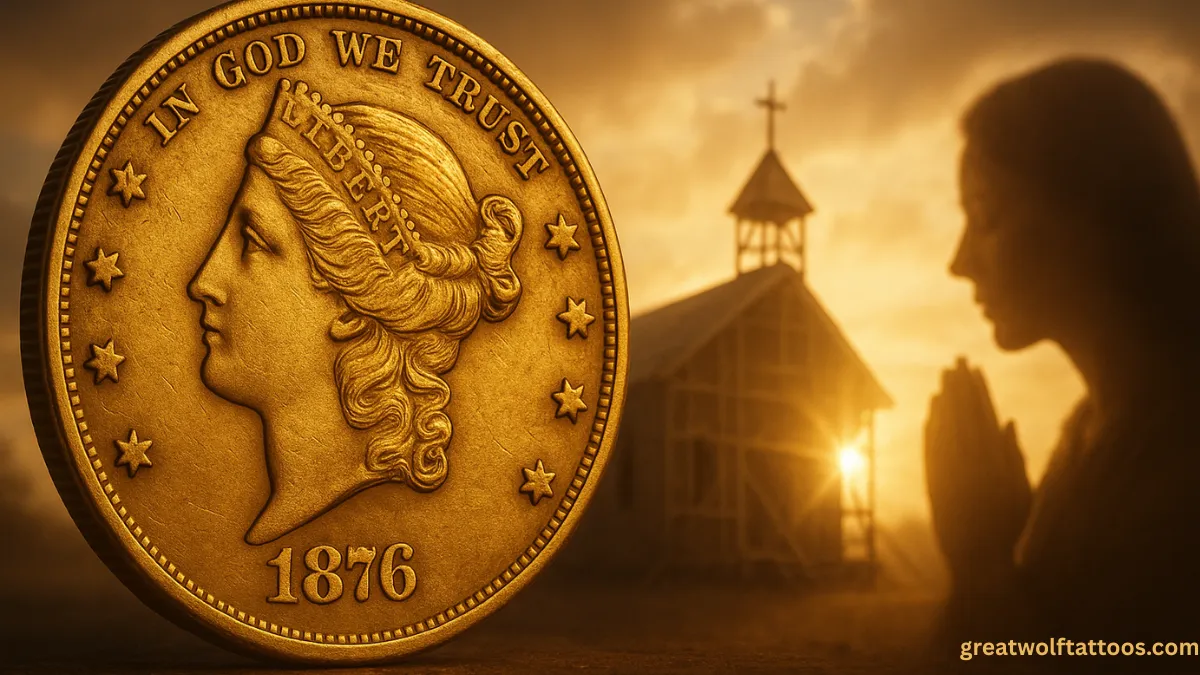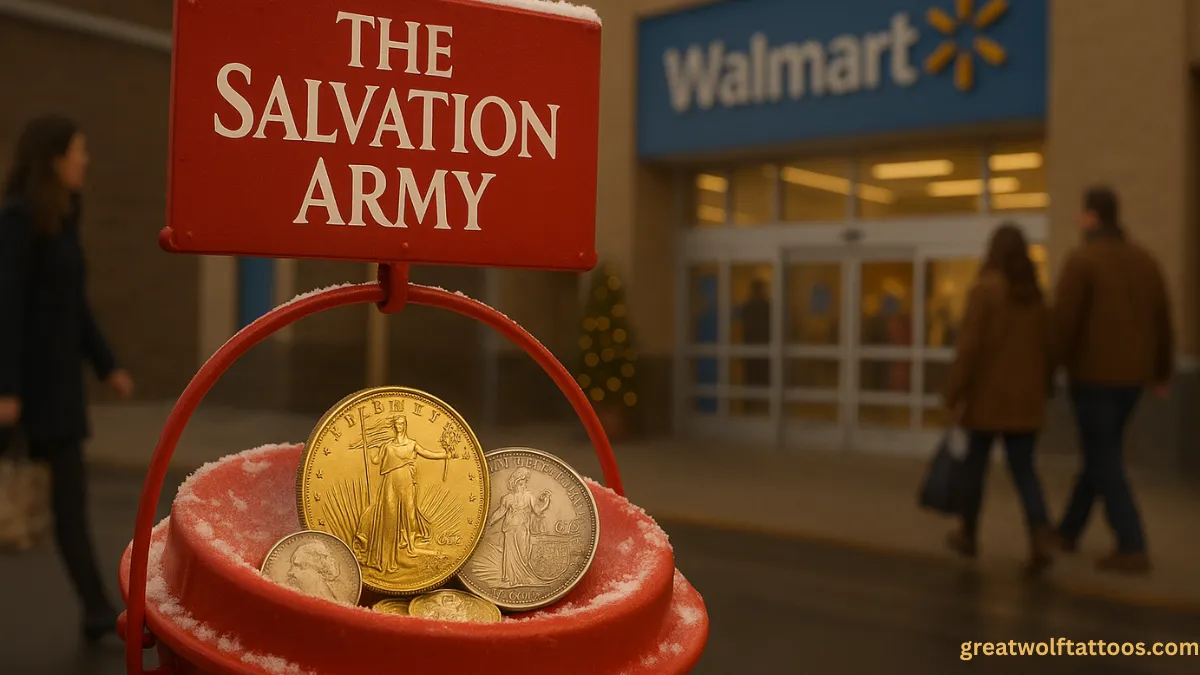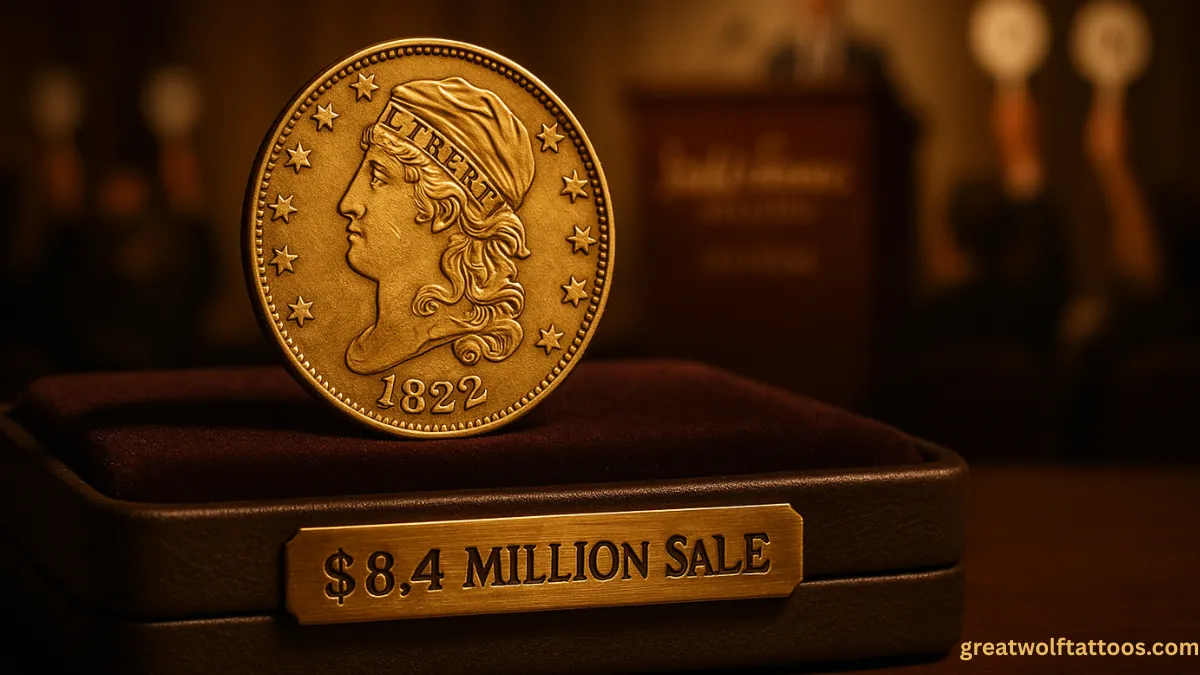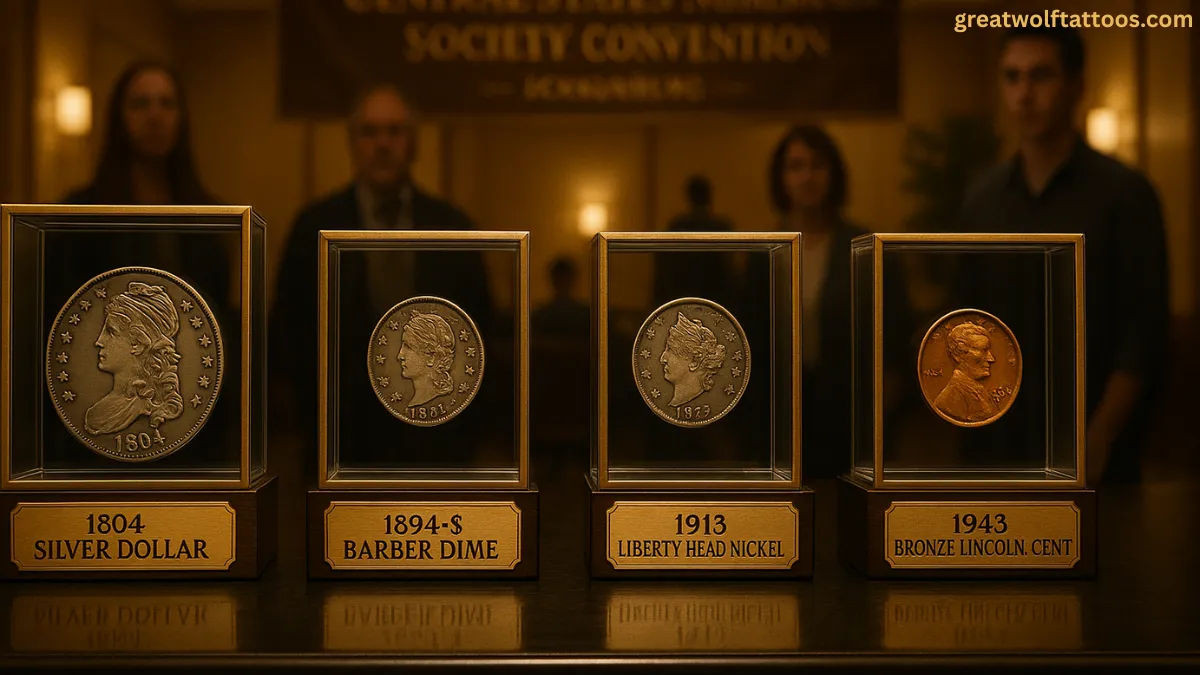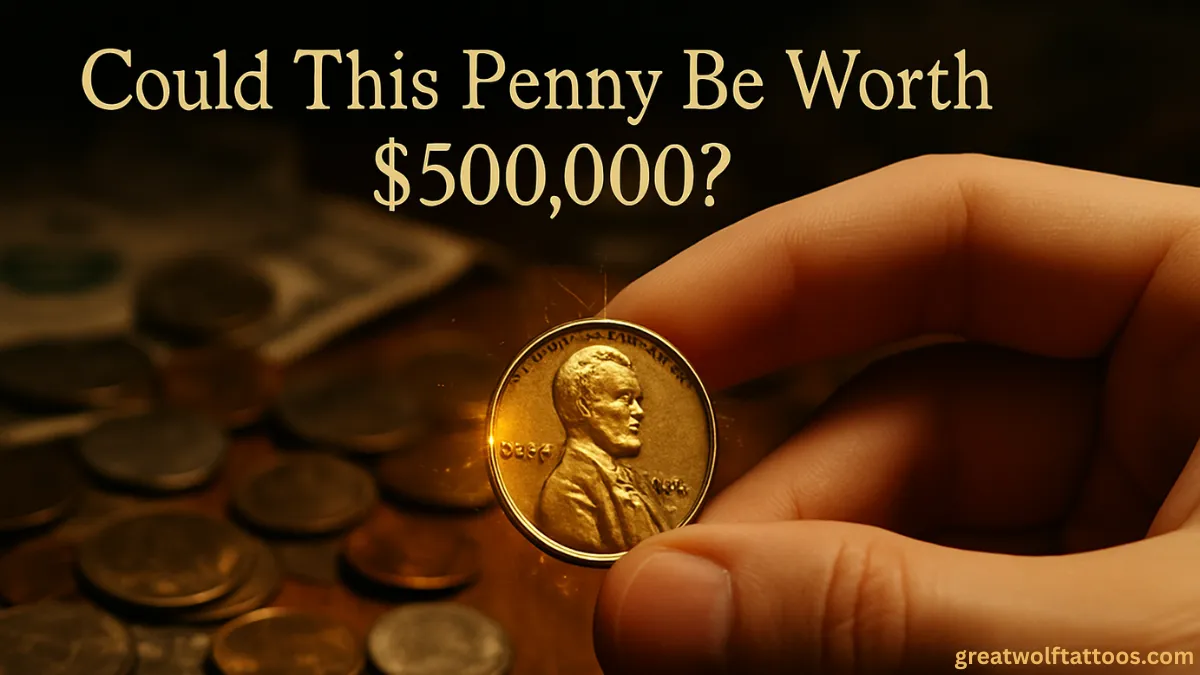The Million-Dollar Penny: In a truly surprising twist, a simple Lincoln Wheat Cent has been valued at an eye-popping $1,111,111. This incredible price has sparked major excitement in the coin-collecting world.
Collectors and coin experts, known as numismatists, are eager to understand what makes this one cent piece worth so much money. In the world of numismatics—the study and collection of coins—factors like history, rarity, and condition play a big role in a coin’s value.
The Lincoln Wheat Cent, produced between 1909 and 1958, has always been popular with collectors because of its unique design and connection to American history.
Historical Significance of the Lincoln Wheat Cent
The Lincoln Wheat Cent was first made in 1909, and it was the first U.S. coin to show a real person—President Abraham Lincoln. This change came as part of the 100th anniversary of Lincoln’s birth. The design, created by Victor David Brenner, shows Lincoln’s face on the front and two wheat ears on the back, which stand for prosperity and growth.
For nearly 50 years, this coin was used in daily life before the design was changed in 1959. Its importance comes not only from how it looks but also from how it ties into America’s culture and economy during the early 1900s.
| Year | Event |
|---|---|
| 1909 | Introduction of the Lincoln Wheat Cent |
| 1958 | Last year of production for the Wheat Cent |
| 1959 | Transition to Lincoln Memorial reverse design |
| 2009 | Centennial of the Lincoln Cent series |
| 2023 | Million-dollar penny valuation |
| 2023 | Growing interest among collectors |
| 2023 | Heightened numismatic research |
| 2023 | Potential for future record-breaking sales |
What Makes the Penny So Valuable
To understand why this one penny could be worth over $1 million, we need to look at several important things. One of the biggest reasons is rarity. Some years had fewer coins made, which makes them harder to find and more valuable. A famous example is the 1909-S V.D.B. penny, which is rare and has the designer’s initials clearly shown.
The coin’s condition is another big factor—coins that are in mint or near-mint condition are worth much more than worn-out ones. If the coin also has a unique history or was part of an important event, that can raise its value even more. Finally, the current demand among collectors can drive prices up.
- How rare the coin is and how many were made
- Whether the coin is in mint condition or worn
- The historical importance of the coin
- Whether the coin has an interesting background
- Trends in the market and collector interest
How Research Impacts Value
| Aspect | Impact | Example | Result |
|---|---|---|---|
| Rarity | Increases value | 1909-S V.D.B. | High collector interest |
| Condition | Enhances appeal | Mint state | Premium pricing |
| Provenance | Boosts desirability | Historical link | Enhanced value |
| Market trends | Drives demand | Collector interest | Price fluctuations |
| Numismatic studies | Informs valuations | Research findings | Increased awareness |
| Condition | Influences pricing | Grading scale | Value determination |
| Collector base | Shapes market | Enthusiasts | Competitive bidding |
Why Numismatic Research Matters
Research in the coin world plays a huge part in figuring out a coin’s true worth. Experts and collectors study the history, minting details, and market activity to better understand each coin. Sometimes, researchers find out new things about a coin’s background or discover rare minting mistakes.
These findings can make a big difference in the coin’s price. For example, a coin with a rare error or a strong historical link becomes even more desirable. These discoveries are often published in coin magazines or journals, helping collectors make smarter decisions when buying or selling.
- Finding rare minting mistakes
- Looking into old mint records
- Watching how collectors buy and sell
- Sharing findings in coin articles
- Helping set fair market values
What the Future Holds for Collectors
The world of coin collecting is changing fast, and the future looks bright. Coins like the Lincoln Wheat Cent are gaining more attention, especially as new finds are made. Today, collectors use technology to help them search for and buy coins. Online auctions, digital coin guides, and collector apps are becoming more popular.
Interest in coin collecting is growing worldwide, bringing people together from all backgrounds to share what they know. As more young people start collecting, the demand for rare and historical coins is expected to keep rising. This could lead to even more coins reaching record values in the coming years.
| Year | Development |
|---|---|
| 2023 | Increased digital engagement |
| 2024 | Technological advancements |
| 2025 | Global collector events |
| 2026 | Emergence of new collectors |
| 2027 | Potential for new discoveries |
FAQs About the Million-Dollar Penny
What makes a penny worth over a million dollars?
A penny can reach such a high value due to its rarity, perfect condition, special historical importance, and strong interest from collectors. Some mint years and errors are especially valuable.
How can I find out what my Lincoln Wheat Cent is worth?
Look at the coin’s year, mint mark, physical condition, and any special features. You can also ask a professional coin expert or use trusted coin price guides to get an estimate.
Are all Lincoln Wheat Cents valuable?
No, not all of them are worth a lot. While many are collected, only rare years or coins in great condition are worth big money. Most common ones in worn condition are worth only a few cents.
Where can I sell a rare Lincoln Wheat Cent?
You can sell it through respected coin shops, auction companies, or trusted websites focused on coins. Make sure to get your coin properly appraised before selling.
James is a passionate astrologer and insightful writer with years of experience interpreting the stars. Known for his clear, engaging style, he specializes in zodiac compatibility, birth chart analysis, and planetary transits. Through his articles and consultations, James helps readers connect cosmic patterns with everyday life, offering guidance rooted in both traditional astrology and modern interpretation. Whether you're a curious beginner or a seasoned astrology enthusiast, James’s work illuminates the path to greater self-awareness and spiritual growth.

